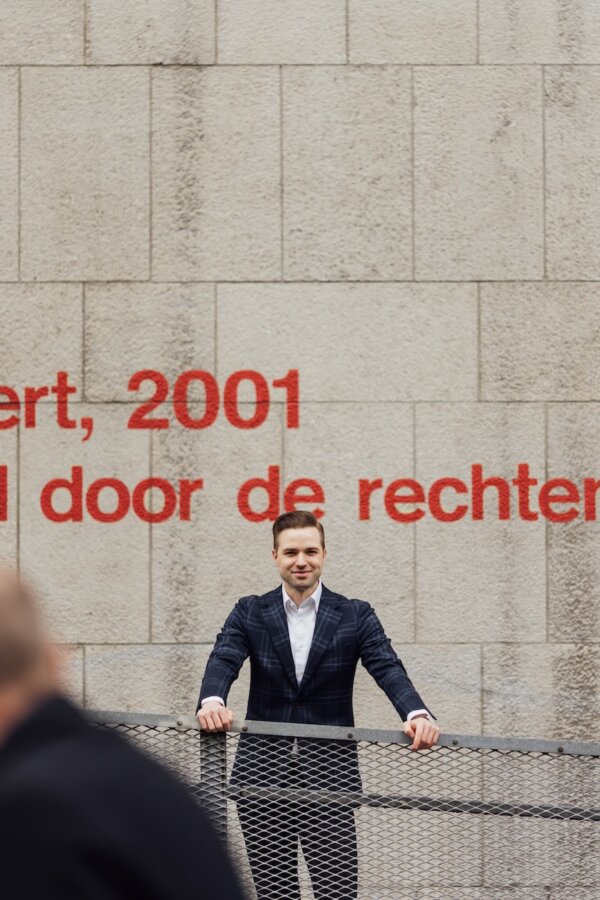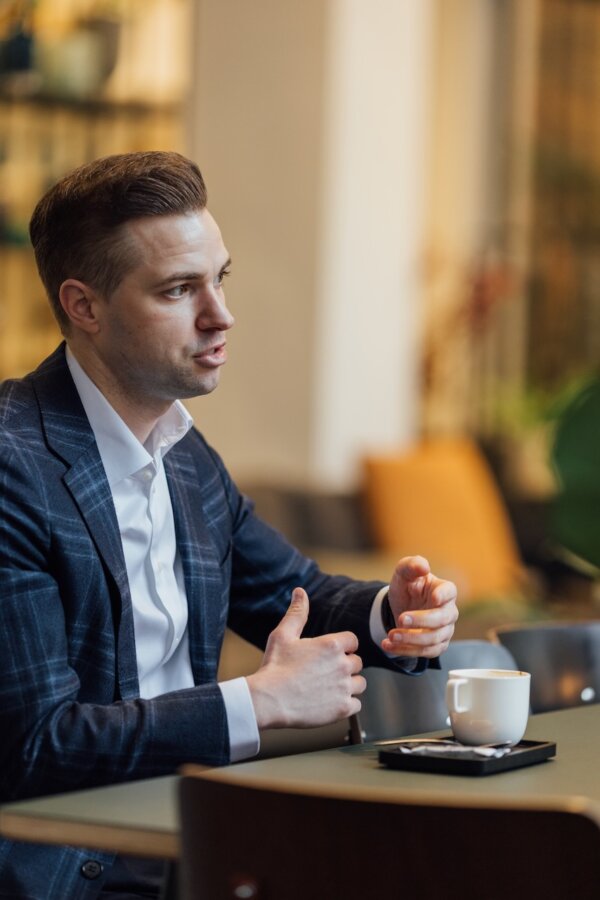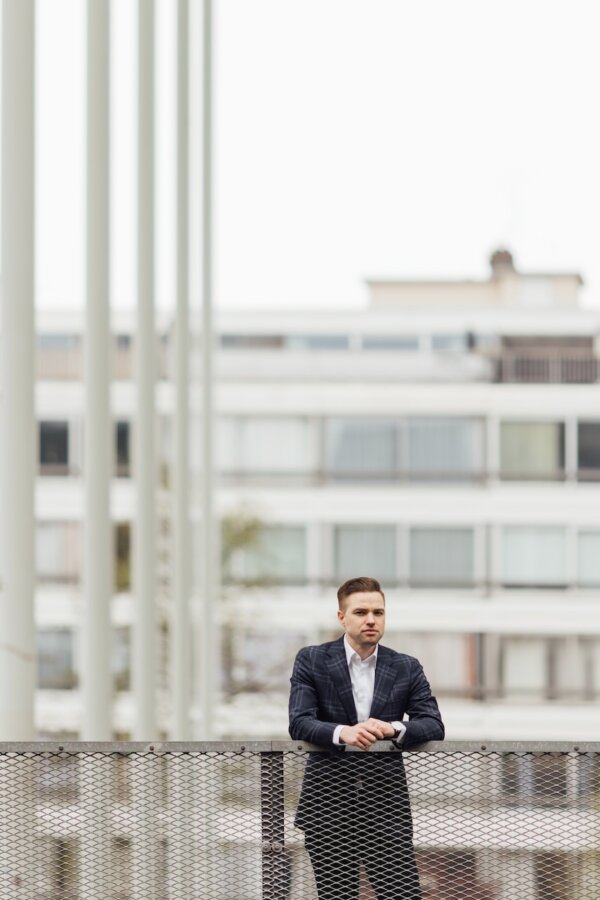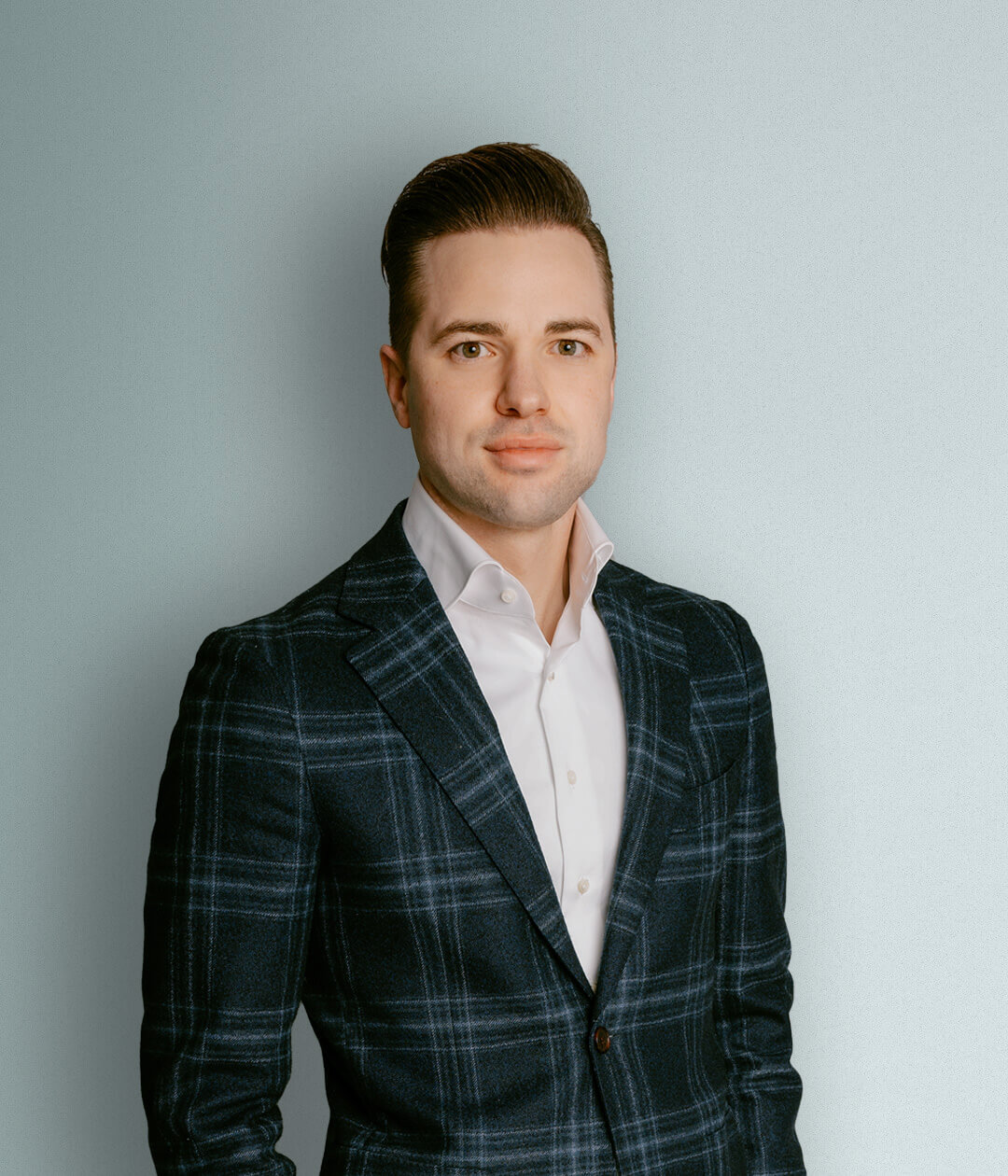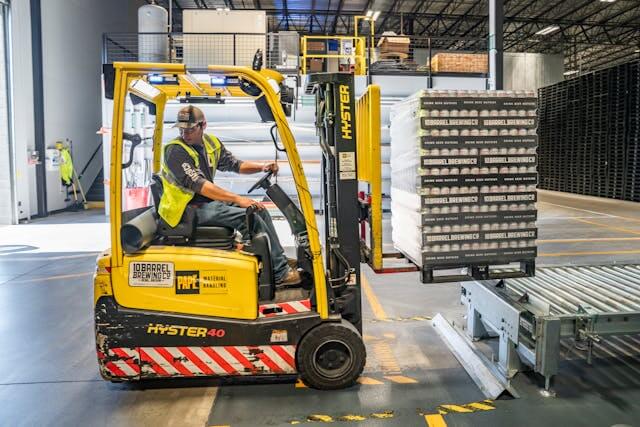Michael has been working at Monard Law nearly throughout his entire career (for almost ten years). It’s time to ask him about his career path, about what’s going on in the world, and what impact these events have on the real estate sector.
Hello, Michael. Could you tell us: who is Michael and what does he do at Monard Law?
Michael: “I’m Michael Vloeberghs, I live in Hasselt, and I specialize in real estate law. I’ve been working at Monard Law since day one of my career: as a junior associate in the first three years, then as an associate three years later, as a senior associate three year after that, and I’ve just been appointed associate partner. I will start this new role in September 2022. I’m sure it’s obvious to you that I love working at Monard Law. Otherwise, I wouldn’t have lasted so long.”
Have you always specialized in real estate?
Michael: “Yes, I immediately went for a specialization in real estate law at the start of my traineeship. I developed a passion for real estate law when I was studying at university. I studied law and then an advanced master’s degree in notarial law in which we were taught a great deal about real estate law.”
Are there certain issues that you often see recurring in real estate? Why do clients often return and seek counsel from you?
Michael: “Virtually for all legal issues that relate to real estate. If I have to pick one element, then it will have to be litigation: if disputes or debates arise and whether they must be negotiated or brought before a court. That takes up a lot of my time. Besides that, I also do advisory work, draft contracts, and help devise strategies for setting up companies that are active in real estate structures, etc.”
Litigation involves many debates between parties. Do you enjoy that type of work?
Michael: “Yes, I enjoy doing that a lot. It’s certainly not because I like to quarrel. I constantly like to try to think in terms of solutions. Sometimes reaching a bad agreement is better than a good lawsuit. Lawsuits are often associated with a lot of costs, time, and—most of all—a lot of uncertainty for a client. That is why we always first try to reach an amicable arrangement. You definitely need two for that. So if opposing party does not want to do that, then it becomes a difficult matter.”
“Try to sit together, talk about it together, and see how you both can get out of it.”
Are there specific hot topics in the real estate sector at this time?
Michael: “Yes, quite a lot. First of all, we had the Covid health crisis. From a legal perspective, it had quite a large impact. For example, think about the contractors who can no longer meet their deadlines because of the following, for instance: co-workers who drop out, materials that cannot be delivered on time or even at all, prices of materials increase, etc. Or even other consequences such as tenants who could no longer pay their rent, HoReCa (hotels, restaurants, catering) or stores that cannot open for business and, because of that, could not generate any or enough income … . Then these questions arise: Is that force majeure? How is this worded in the contract? How is this stipulated in the law?”
“And the war in Ukraine… That has a large impact, too. For example, we notice that the price for everything has gone up, also in the real estate sector. If you signed a contract half a year or a year ago, then you would have paid a fixed price. The reality is that it is completely different nowadays. Some contractors are at a loss for what to do with the price increases. If you asked for an offer in the past, then this would typically be valid for one month. And now, we’re moving towards prices and offers that are calculated on a weekly or daily basis. I’ve even heard from clients that prices are even being calculated and offered every hour. Then you also have raw materials that are stuck in Ukraine because of transport problems.”
“This will consequently make investors think differently, for example, instead of constructing, they will consider more frequently renovating and recycling: “every crisis is an opportunity.” The prices for real estate have gone up tremendously as well. The legislature reduced the registration fees to 3% (for the purchase of your first (family) home), but, on the other hand, you have banks that are going to charge more interest, energy becomes more expensive, etc. A few months ago, you probably still paid less than 1% interest on a loan, but that has increased as well. Everything is getting more expensive and compelling—for entrepreneurs and for consumers.”
What would you advise entrepreneurs regarding the price increase?
Michael: “Engage in a dialogue with your opposing party. That’s what we advise our clients as well. Don’t try too hard to have everything in writing immediately. You are parties to a contract, so you’ll normally have to cooperate and think long and hard about the entire contract. Avoid getting into a situation in which you directly become the “opposing party.” I believe that you should discuss this and that you must try (together) to limit the damage. For example: How can you bear the price difference together? I think that that is the most humane and appropriate manner. In short, my advice is this: try to sit together, talk about it together, and see how you both can get out of it.”
As a lawyer, you could be seen as the “bad guy” sometimes in such situations. How do you deal with that?
Michael: “Sometimes that’s a role we have to play. We’re here to protect our clients. I try to avoid being labeled “the difficult lawyer” by being someone of integrity. Sometimes the parties are in such a deadlock that they don’t care anymore how far they should go or how much it will cost to win the case. Then I tell them: ‘Be careful. If you take all this to court and you all play hard ball, then your fate will not longer be in your hands…’. Some clients realize this but still want to take the risk.”
“If they take that risk, they’ll have a chance of winning. Then we would do everything to achieve that. But the court might agree with you partly or you might even lose the case. I don’t really like to lose. You can ask my wife about that. She doesn’t always want to play board games with me because I play to win and not really for the company (laughs). That is also reflected in a lot of things I do in life. When I was a student, I did everything I could to avoid having to re-sit any of my exams. It’s difficult for me to go through that in my head. For me, it’s usually all or nothing.”
Do lawyers generally have a must-win attitude?
Michael: “Yes, we do, and I think that is a positive thing. You must absolutely want to win, and, to achieve that, you must do everything in the client’s interest, but you must also be fair. If the cards don’t look so good for your client, then you must communicate that honestly to them and deal with it strategically. What is important is that the client’s interest must always prevail.”
Do you still have personal ambitions? If yes, what are they?
Michael: “My first major ambition was to continuously grow career-wise at the firm. I just got the chance to take the first step and become associate partner, and I hope to continue to build a nice career.”

What exactly does the career path to associate partner entail?
Michael: “We have regular talks at Monard Law about our career. They would ask, for example: Where do you see yourself five years from now? Where would you want to reach in terms of growth? How do you see your future career? At a certain point in time, I shared with them thoughtfully about my ambition, which is that I would love to continue to grow and build my career at the firm. I had many talks with the partners, with Karen Braeckmans (CEO) and Wendy Rymen (CFO). I also wrote a business plan, which I had subsequently discussed with the partners and had defended before the chairpersons of our practice groups. In addition, an—external—assessment of me was also conducted at the same time. Starting September, my appointment will be official, and I’m going to live up to it. I’m very much looking forward to it. And I feel that the firm supports me.”
What responsibilities does this new position entail?
Michael: “Attract and create work, be involved in thinking about and taking part in the firm’s expansion, manage client portfolios more independently, guide and train juniors. I find the latter to be very important. If a client gives positive feedback on the work done by one of the junior colleagues, then it’s wonderful to be able to see that they are developing and growing in their careers. That gives me satisfaction.”
The real estate practice group consists of a team of 12 lawyers. How do you strengthen each other?
Michael: “You always have a certain quality control and you keep each other sharp-minded. You have the possibility to consult a partner who has more experience or a colleague who specializes in a particular matter. That person has probably handled a similar matter and can therefore give the most appropriate advice. We try to make each other stronger by giving positive feedback to each other and thus to assist them through advice and actions if necessary. I must say that Monard Law has a great working atmosphere in general, which I’ve seen improve even more in the last few years. That is stimulating! We spend a great deal of time at work, so it’s great that the ambiance is pleasant and positive.”
“Our team of secretariat co-workers are fantastic.“
Why is the firm’s atmosphere and team spirit so great?
Michael: “I think that Karen Braeckmans, CEO of Monard Law, plays an important role in that. And we should also consider factors of an optimal working environment such as good infrastructure, possibility to work from home, and the attention given to relaxation and having fun besides working hard, … There has also been more young partners appointed in the last few years. Most have already built up incredible client portfolios and a top-performing team that works for them. You can look up to that.”
“Our team of secretariat co-workers are fantastic as well. They do a lot for us so that we can focus on the legal matters more easily. Without them, I would forget things more often and would lose a lot of valuable time. They do their job very well, they often think along with us, and they’re very important to our teams, which is sometimes underestimated. They make sure that we stay on task, and they often relieve us from a lot of tasks as well.”
“And finally, about the realistic career path that Monard Law offers: I think that I’m the best example of it. Sometimes I call myself ‘the product of the firm.’ Because you see that it is actually possible. In large firms, continuous growth is less obvious. At Monard Law, there are certainly possibilities. This also creates a nice atmosphere and healthy drive among colleagues. You know that if you work hard, produce the quality of work needed, are motivated, and do your best, you can be rewarded for it.”

